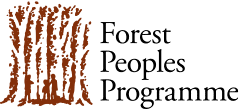Focal point
Location
Mission
Forest Peoples Programme supports the rights of peoples who live in forests and depend on them for their livelihoods. We work to create political space for forest peoples to secure rights, control their lands and decide their own futures.
Goals
- Get the rights and interests of forest peoples recognised in laws, policies and programmes
- Support forest peoples to build their own capacities to claim and exercise their human rights
- Counter top-down policies and projects that threaten the rights of forest peoples
- Promote community-based sustainable forest management
- Ensure equity, counter discrimination and promote gender justice
- Inform NGO actions on forests in line with forest peoples’ visions
- Link up indigenous and forest peoples’ movements at the regional and international levels
Resources
Displaying 31 - 35 of 52A Handbook on the CEDAW: Realizing Indigenous Women's Rights
This handbook is an introduction to the human rights of indigenous women. It provides some detail on the CEDAW as the only instrument specifically for women. It also provides a brief overview of the other available human rights mechanisms.
Agribusiness large-scale land acquisitions and human rights in Southeast Asia - Updates from Indonesia, Thailand, Philippines, Malaysia, Cambodia, Timor-Leste and Burma
The series of studies discussed in this overview pull together updated information about large-scale land acquisitions in the region, with the aim of identifying trends, common threats, divergences and possible solutions. As well as summarising trends in investment, trade, crop development and land tenure arrangements, the studies focus on the land tenure and human rights challenges.
Forest Peoples Programme - Annual Report 2013
Dear friends,
Released today, the 2013 Forest Peoples Programme Annual Report, presents activities from all areas of our work over the last year, also marking our first year with Joji Cariño as Director.
Divers Paths to Justice: Legal pluralism and the rights of indigenous peoples in Southeast Asia
This publication reveals that the majority of Southeast Asian countries already have plural legal systems, and to some extent custom is recognised as a source of rights in the legal framework of a number of them. National and international courts have affirmed indigenous peoples’ customary rights in land. And all these countries have endorsed and ratified key international human rights laws and treaties-- thus, the basis for securing indigenous peoples’ rights through a revalidation of customary law exists.







